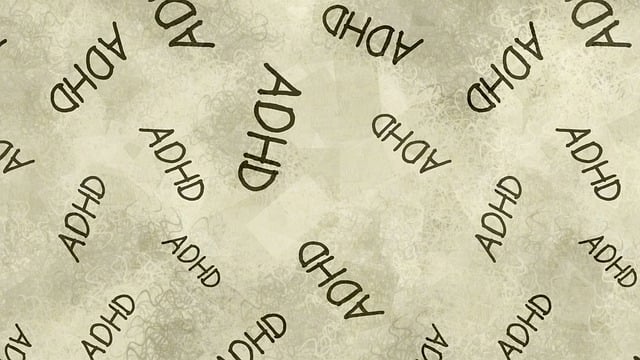In today's fast-paced world, Crisis Intervention Teams (CITs), composed of diverse professionals including Denver divorce therapy specialists, provide immediate support and de-escalation techniques during emotional crises. Integrating CIT training into local programs enhances trauma support services by equipping individuals with skills to navigate high-pressure situations effectively. Denver Divorce Therapy offers a comprehensive crisis intervention program focusing on empathy building, resilience development, and community outreach, using role-playing and interactive workshops to teach active listening, emotion validation, stress management, and conflict resolution. The implementation of these programs in urban areas like Denver has a profound impact: it reduces strain on emergency services, improves accessibility, encourages compassionate interactions, and breaks down stigma around mental health support.
“In today’s complex social landscape, crisis intervention teams (CITs) play a pivotal role in providing immediate mental health support. This article explores the critical function of these teams and delves into the training programs that empower them. We highlight Denver Divorce Therapy’s unique contribution to CIT preparation, focusing on key components for effective training. By examining real-world implementations, we uncover the profound impact these programs have on communities, ultimately enhancing crisis response capabilities.”
- Understanding Crisis Intervention Teams: A Vital Resource for Mental Health Support
- The Role of Denver Divorce Therapy in Training and Preparation
- Key Components of Effective Crisis Intervention Team Training Programs
- Implementation and Benefits: Real-World Impact on Communities
Understanding Crisis Intervention Teams: A Vital Resource for Mental Health Support

In today’s fast-paced world, mental health crises are increasingly common, making Crisis Intervention Teams (CITs) a vital resource for communities across Denver and beyond. These specialized teams, often comprised of trained professionals from various disciplines, including Denver divorce therapy specialists, play a crucial role in providing immediate support and de-escalation techniques during times of intense emotional distress or traumatic events. By integrating CIT training into local community programs, individuals equipped with these skills can better navigate high-pressure situations, thereby enhancing the overall effectiveness of trauma support services.
CITs are designed to offer a collaborative and comprehensive approach to mental wellness, preventing burnout among practitioners while ensuring that those in need receive swift and compassionate care. Through regular exercises and scenarios mirroring real-life crises, participants learn effective communication strategies, crisis de-escalation techniques, and the importance of self-care—all essential components for both supporting individuals facing acute mental health challenges and maintaining long-term mental wellness.
The Role of Denver Divorce Therapy in Training and Preparation

Denver Divorce Therapy stands out as a beacon of hope and guidance for individuals navigating the complex landscape of separation and divorce. Their crisis intervention team training programs are meticulously designed to equip participants with the essential tools needed to support others facing relational transitions. Through a multifaceted approach, the therapy centres on fostering resilience, promoting healthy coping mechanisms, and enhancing emotional intelligence—all crucial elements in effective crisis intervention.
The programme delves into various techniques such as mindfulness meditation and mood management strategies, enabling participants to better understand and address their own emotional states while cultivating empathy for others’ experiences. Additionally, self-esteem improvement exercises play a pivotal role in helping individuals overcome the challenges that often arise during divorce, empowering them to offer tailored support to their fellow community members facing similar crises.
Key Components of Effective Crisis Intervention Team Training Programs

Effective crisis intervention team training programs are multifaceted, aiming to equip participants with a comprehensive toolkit for handling crises. The foundation lies in Empathy Building Strategies, fostering a deep understanding and connection with individuals in distress. Through role-playing scenarios and interactive workshops, teams learn to listen actively, validate emotions, and offer non-judgmental support. This empathetic approach is crucial for gaining the trust of those facing crises, be it mental health issues, domestic violence, or substance abuse.
Moreover, these programs delve into Resilience Building, equipping team members with strategies to enhance their own mental fortitude and that of the individuals they serve. By integrating evidence-based practices from fields like Denver Divorce Therapy, participants learn techniques for stress management, conflict resolution, and post-crisis recovery. A well-rounded curriculum also emphasizes Community Outreach Program Implementation, encouraging collaboration with local resources and community organizations to provide holistic support networks for those in need.
Implementation and Benefits: Real-World Impact on Communities

The successful implementation of crisis intervention team training programs can have a profound real-world impact on communities, especially in urban centers like Denver. By integrating specialized training into existing community outreach programs, these initiatives equip first responders, mental health professionals, and even ordinary citizens with the tools to handle critical situations effectively. This collaborative approach, often facilitated by Denver Divorce Therapy and similar organizations, enhances public awareness campaigns development, fostering a culture of mindfulness meditation and emotional intelligence.
The benefits extend beyond individual responses; they ripple through the community fabric. With properly trained individuals, there is a significant reduction in the strain on emergency services during mental health crises. This not only improves accessibility for those in genuine need but also ensures that resources are allocated efficiently. Moreover, increased public awareness and understanding of mental health issues can lead to more compassionate interactions, breaking down barriers and encouraging individuals to seek help without stigma.
Denver Divorce Therapy highlights the importance of comprehensive crisis intervention team (CIT) training programs in enhancing mental health support within communities. By equipping professionals with essential skills, these programs empower them to navigate and de-escalate crises effectively. The article explores key components, benefits, and real-world impacts, underscoring how effective CIT training acts as a game changer in fostering resilient and supportive environments.











